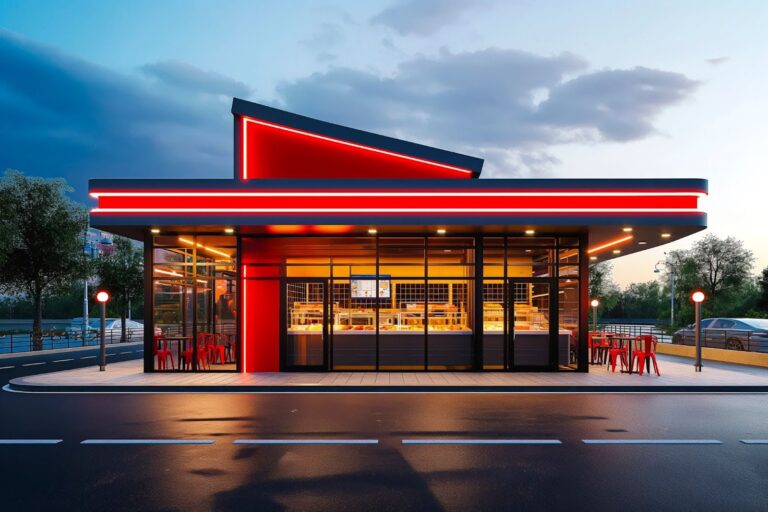End-of-Year Tax Savings for Restaurant Owners

The end of the year is here, and you might be thinking about smart ways to reduce your tax bill.
Let’s start with an important point: it’s never worth spending money just to save on taxes if it jeopardizes the cash flow that keeps your restaurant running smoothly.
Be wary of anyone suggesting that you make purchases or investments that could drain your working capital. Tax savings are great, but not if they put your business at risk!
The reality is, to save money on taxes, you often have to spend money—but only if you have the cash to spare.
Here’s a practical guide to tax-saving strategies that work for restaurant owners. Just remember, these strategies only make sense if you have some extra cash on hand.
If you don’t, it might be wiser to manage your tax bill as it stands.
Invest in Equipment and Improvements
(If You Can Afford It)
Are you thinking about new kitchen equipment, furniture, or décor upgrades? Investing in business improvements can be a smart way to lower your taxes—if you have the capital.
When you purchase equipment, like a new stove or an upgraded POS system, those expenses are typically tax-deductible, often in the same year you buy them.
This can be a win-win, adding value to your restaurant while reducing your taxable income.
However, if cash is tight and you need a loan to cover the costs of the investment, make sure you can afford the debt. A tax deduction won’t help if your cash flow dries up because you took on debt you couldn’t afford.
Consider Prepaying Expenses
(If You’re Cash Basis)
If your restaurant operates on a cash basis—meaning you’re taxed on the money that actually comes in and goes out—there’s a simple way to lower your taxable income for this year: pay your expenses now.
Prepaying expenses like rent and utilities before the year ends can reduce your taxable income, giving you more cash to work with in the new year.
Once you start prepaying vendors, it’s a good idea to keep it up each year; otherwise, going back to a regular payment schedule might lead to higher taxes next year.
Just make sure this is a sustainable practice and not just a one-time fix.
Invest in Your Staff Through End-of-Year Bonuses
Showing appreciation to your team with end-of-year bonuses doesn’t just build morale; it can also help reduce your taxable income.
Bonuses are tax-deductible, meaning they can offset the revenue your restaurant made this year.
If you’ve had a strong year and have cash on hand, year-end bonuses can benefit both you and your staff—just be sure to issue them by December 31st to count for this tax year.
Take Advantage of Retirement Contributions for Future Savings
Investing in retirement plans, like a SEP IRA or a 401(k), can help you save for the future while reducing your taxable income today.
If you’re setting up a plan for yourself or your employees, any contributions you make are tax-deductible, meaning you’ll have less taxable income now.
If you’ve been considering a retirement plan but haven’t set one up yet, it’s not too late for this tax year. You have until the tax filing deadline, typically April 15, 2025, to make contributions for the 2024 tax year.
For 2024, the contribution limit for a 401(k) is $23,000, with an additional catch-up contribution of $7,500 for those aged 50 and over. For a SEP IRA, you can contribute up to 25% of your compensation or a maximum of $69,000, whichever is less.
The best part about any profit sharing contributions to your 401k plan is that you can claim the deduction on your tax return, but do not have to actually make the contribution payment until you file your tax return, which gives you all the way up to the September 15th tax extension deadline to make the payment, but claim the tax deduction on the prior year tax return.
Time the Opening of Your Next Location
If you open a new location close to the end of the year, you can start deducting certain startup expenses, like lease and marketing costs, in the same tax year. This can help lower your taxable income right away.
You can also begin depreciating major assets, such as kitchen equipment and building improvements, sooner, which further reduces your tax burden.
Don’t worry if your new location takes time to become profitable. Any initial losses can actually benefit you by offsetting income from your other locations, helping to reduce your overall taxable income.
**Note** There is a common ownership requirement, as well as that the new location’s concept is not a new concept, but an extension of the existing concept to qualify for the immediate tax deduction.
Maximize Your Vehicle Expense Deductions
When using a vehicle for business purposes, the 50% rule allows you to deduct expenses if the vehicle is used for business at least half the time.
This deduction can include costs such as fuel, maintenance, insurance, registration fees, and depreciation. It’s crucial to keep accurate records and mileage logs to distinguish between personal and business use.
For simplicity, you may opt for the IRS standard mileage deduction, which multiplies a set rate by the business miles driven.
Alternatively, you can explore Section 179, which allows you to deduct the full cost of qualifying vehicles in the year of purchase, providing an immediate tax benefit.
If you don’t qualify or prefer not to use Section 179, regular depreciation lets you spread the vehicle’s cost over several years, gradually easing the tax impact.
Qualify for the Qualified Business Income (QBI) Deduction
As a restaurant owner, if you operate your business as a sole proprietorship, partnership, or S corporation, you may be eligible for a special tax break called the QBI deduction that came about during the 2017 Tax Cuts and Jobs Act tax reform.
This deduction allows you to deduct a portion of the money you make from your restaurant business on your taxes.
To claim the QBI deduction, you’ll first need to calculate your qualified business income (QBI) for the tax year. This is the amount of money you made from your restaurant business, minus certain items that aren’t included (like capital gains or losses, or income from outside of the US). Once you have that number, you can deduct up to 20% of it from your taxable income.
But, there are some limits to this deduction, depending on your taxable income, the amount of W-2 wages paid by the restaurant, and the unadjusted basis immediately after acquisition (UBIA) of qualified property held by the restaurant.
It’s important to note that this deduction can be complicated, so it’s always a good idea to consult with an experienced restaurant accountant to make sure you’re complying with tax laws.
Hire Your Kids to Work in Your Restaurant
By hiring your kids, you can shift income to them, which may help reduce your overall tax burden since they are likely in a lower tax bracket.
The wages you pay them are a legitimate, deductible business expense, which lowers your restaurant’s taxable income.
If your kids are under 18 and your restaurant is a sole proprietorship or a family-only partnership, you might also avoid paying Social Security and Medicare taxes on their wages.
Need Help With Your Restaurant’s End-Of-Year Tax Savings?
Some of these tax strategies can be complex, and you may need the help of an experienced restaurant accountant.
Here at U-nique Accounting, we’re always here to help.
Our team specializes in working with restaurant owners, so we understand the unique challenges you face. We can help you build a tax plan that lowers your tax bill and supports your growth.
Book a quick call with us today to see how we can help. Simply use the calendar below to get started.
Until next time!

By MATT CIANCIARULO



